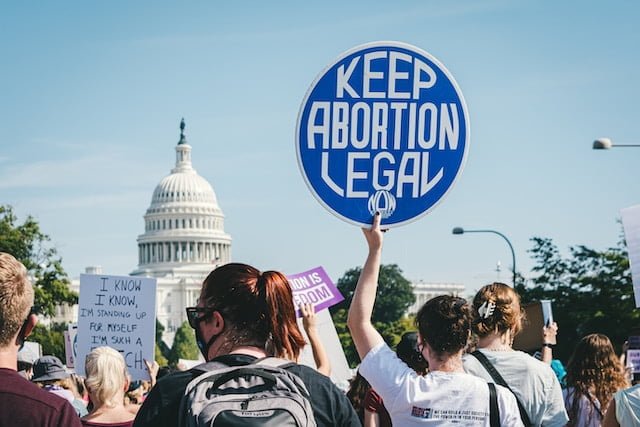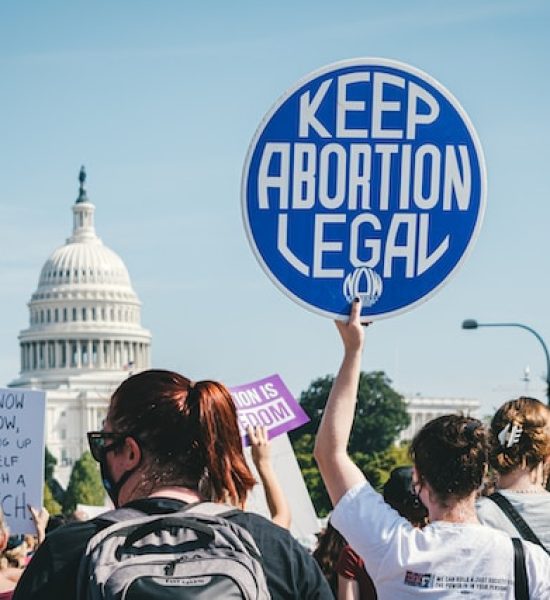Abortion is a deeply polarizing and complex topic that evokes strong emotions and beliefs. It is a subject that goes beyond legal frameworks and religious doctrines, delving into the realm of human rights. In this blog post, we will explore the multifaceted nature of abortion, examining it through the lens of human rights, personal autonomy, and societal responsibility.

Body:
- Personal Autonomy and Bodily Autonomy: At the heart of the abortion debate lies the concept of personal autonomy, a fundamental human right. Autonomy implies the right to make decisions about one’s own body and life without external coercion. Bodily autonomy, a subset of personal autonomy, is a principle that asserts an individual’s right to control what happens to their own body. When applied to the issue of abortion, these principles emphasize a woman’s right to choose what happens within her own reproductive system. Advocates for abortion rights argue that restricting access to safe and legal abortion infringes upon a woman’s autonomy. Denying a woman the right to make decisions about her own body is seen as a violation of her basic human rights. It is crucial to recognize that respecting personal autonomy does not necessarily mean promoting abortion but rather acknowledging an individual’s right to make choices about their own reproductive health.
- Reproductive Rights as Human Rights: Reproductive rights are a subset of human rights that include the right to decide on the number and spacing of children and the right to access the information and means to exercise these choices. The right to safe and legal abortion is an integral component of reproductive rights. When individuals are denied access to safe and legal abortion, their reproductive rights are compromised, leading to severe consequences for their physical and mental well-being. The World Health Organization (WHO) estimates that nearly 25 million unsafe abortions occur worldwide each year, resulting in significant health risks and even fatalities. By recognizing abortion as part of reproductive rights, society can work towards ensuring that individuals have the information and access to services needed to make informed decisions about their reproductive health.
- Public Health and Safety: Legalizing and regulating abortion contributes to public health and safety. When abortion is illegal or heavily restricted, individuals may resort to unsafe and clandestine procedures, posing serious risks to their health and well-being. By contrast, countries with legal and accessible abortion services have seen a decline in maternal mortality rates and complications related to unsafe procedures. Comprehensive reproductive healthcare, including safe and legal abortion, ensures that individuals can make decisions in consultation with medical professionals, reducing the risks associated with unsafe practices. A public health approach to abortion acknowledges the reality that women will seek abortion services, and the focus should be on making these services safe, accessible, and supportive.
- Societal Responsibility: The debate on abortion also involves considering societal responsibilities towards individuals facing unintended pregnancies. Creating an environment that supports comprehensive sex education, accessible contraception, and affordable healthcare services can contribute to reducing the number of unplanned pregnancies. Societal responsibility extends beyond the legality of abortion to addressing the root causes of unintended pregnancies and supporting individuals in making informed choices about their reproductive health. A compassionate and understanding society recognizes that individuals may face diverse circumstances, and providing support rather than judgment can contribute to overall well-being. Advocates for reproductive rights argue that society has a responsibility to foster an environment where individuals can access information, services, and support to make choices that align with their own values and circumstances.
- Cultural and Religious Perspectives: Acknowledging the cultural and religious diversity surrounding the issue of abortion is essential. Views on abortion vary widely across different societies and belief systems. While some religious and cultural traditions may oppose abortion, others may allow for more flexibility in individual decision-making. Respecting cultural and religious perspectives does not mean imposing a singular view on all individuals. Rather, it involves finding common ground that allows for a diversity of opinions within a framework that upholds fundamental human rights. Striking a balance between cultural and religious values and the protection of individual rights requires open dialogue and a commitment to understanding different perspectives.
Conclusion:
Abortion is a complex and deeply personal issue that intersects with various aspects of human rights, autonomy, and societal responsibility. Recognizing abortion as a human right involves acknowledging the importance of personal autonomy, understanding the role of reproductive rights in overall health, and promoting a society that supports individuals facing unintended pregnancies.
By approaching the abortion debate with empathy, compassion, and a commitment to human rights, societies can work towards finding common ground that respects diverse perspectives while ensuring the protection of individual autonomy and well-being. Ultimately, the conversation around abortion should be grounded in a shared goal of fostering a society that values the dignity and rights of all its members.




